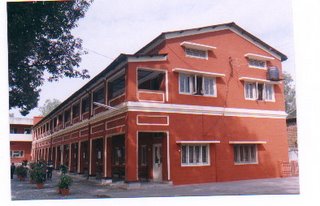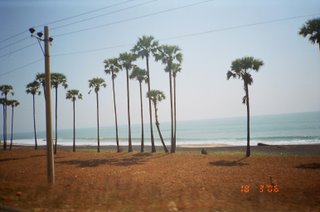
It’s difficult not to tell this story when I am talking about my grandfather.
Baba, as I called him, worked in the railways, and for a good part of his work life as a stationmaster. Being a transferable job, he was posted to various places, big and small, but among all the stories of almost all his postings that he narrated to me, the ones to Nishangada and Kartinyaghat (both in Uttar Pradesh) stood out. For, both the places were isolated, far from civilisation, in the midst of wilderness.. and Baba spent close to six years in each of the postings, alone.
My grandmother could not accompany him to the postings for the simple reason that there was just no humanity around these sub-stations leave alone a school which was important as my father, the eldest, and his two siblings were all school-going. So, dadi stayed in Gonda with the children.
And these were not the regular railway stations that had railway platforms where passengers came and waited for their trains to come. There were no tea-stalls. There were no hawkers selling newspapers or samosas. There was nobody else there except the official posted at the sub-station.
There was a one room structure atop a concrete machan. The machan was necessary to protect the station in-charge from being attacked by wild animals given that they were situated in the midst of jungles.
So, Baba lived and worked out of the one-room structures for years together. He spoke about these postings to me rather matter-of-factly… about his routine, how he spent his time alone for innumerable days. But, he never indulged in self-pity. Work, he said, was very important, irrespective of work conditions.
Well, my grandmom would visit him with the children once in a way, when the school was closed for vacations and even he would make a trip to Gonda on festivals. But these moments were few and far in between. The only companion Baba had for years, apart from the wild animals that prevented him from venturing out much, was a passenger train, the only train that passed through Nishangada every afternoon, when he would wave the green flag __ the only moment of activity in an endless day.
There were no trains in the night as both Nishangada and Kartinyaghat were protected areas under the wildlife act. Now, my father tells me that both places are well connected and several trains take the route to various destinations.
Even as Baba narrated the stories to me, I wondered what it would have been like to live all alone for so many years. I imagined him waiting for the passenger train, standing at his window before the train’s scheduled time, with his green flag folded neatly under his arm, his ears strained for the train’s whistle… and then it would pass him in a minute leaving him alone, again. I would look at Baba closely when he told his experiences to me to see if he was trying to hide any emotion from me… he never was. He used to say how he was always happy with his work. Yes, once he mentioned that the ‘white’ stationmasters were never posted to Nishangada or Kartinyaghat.









